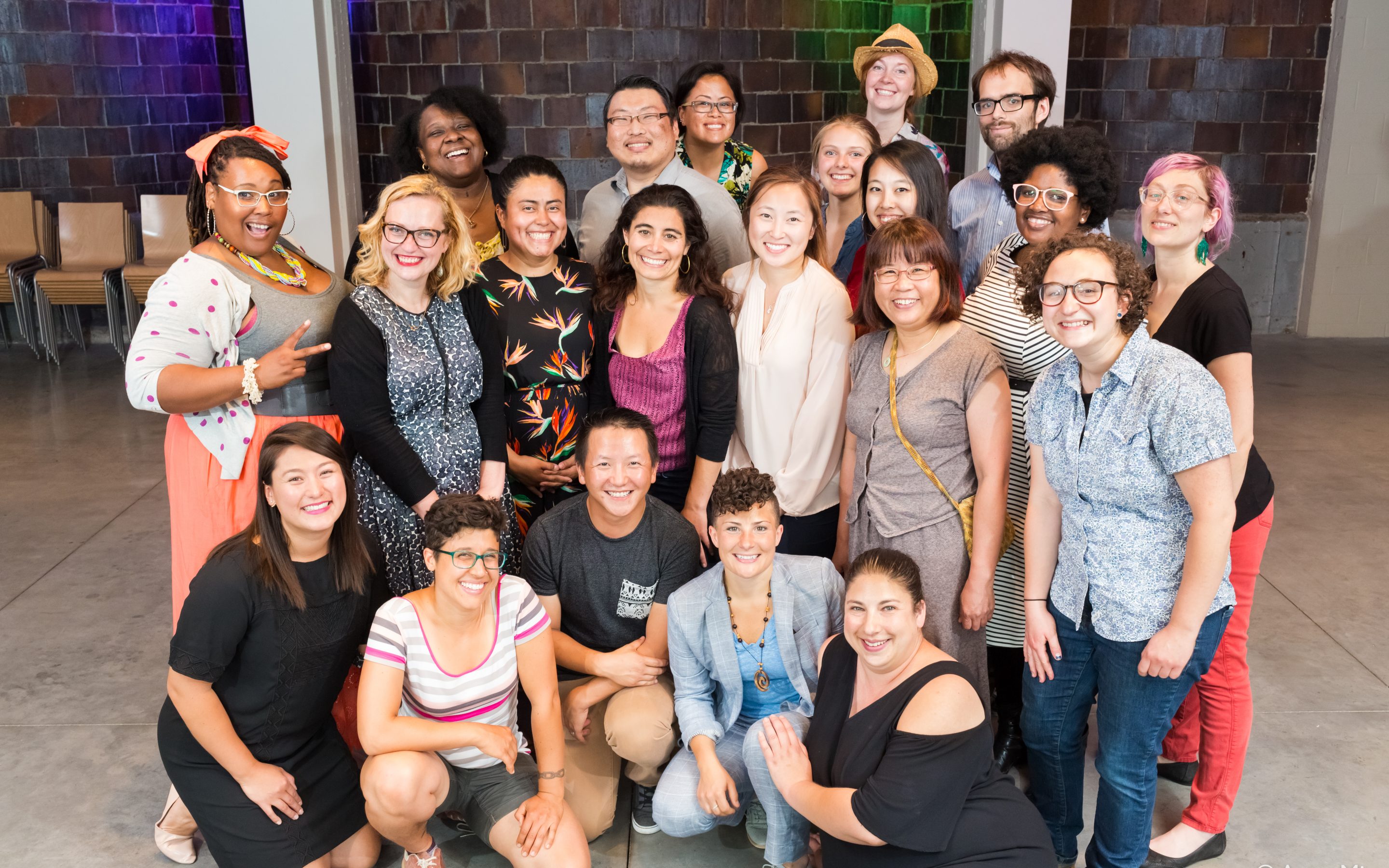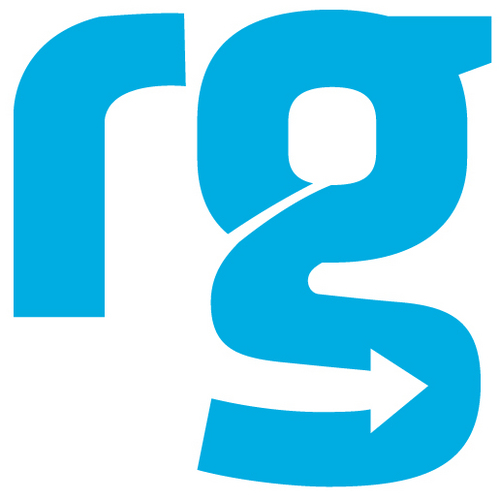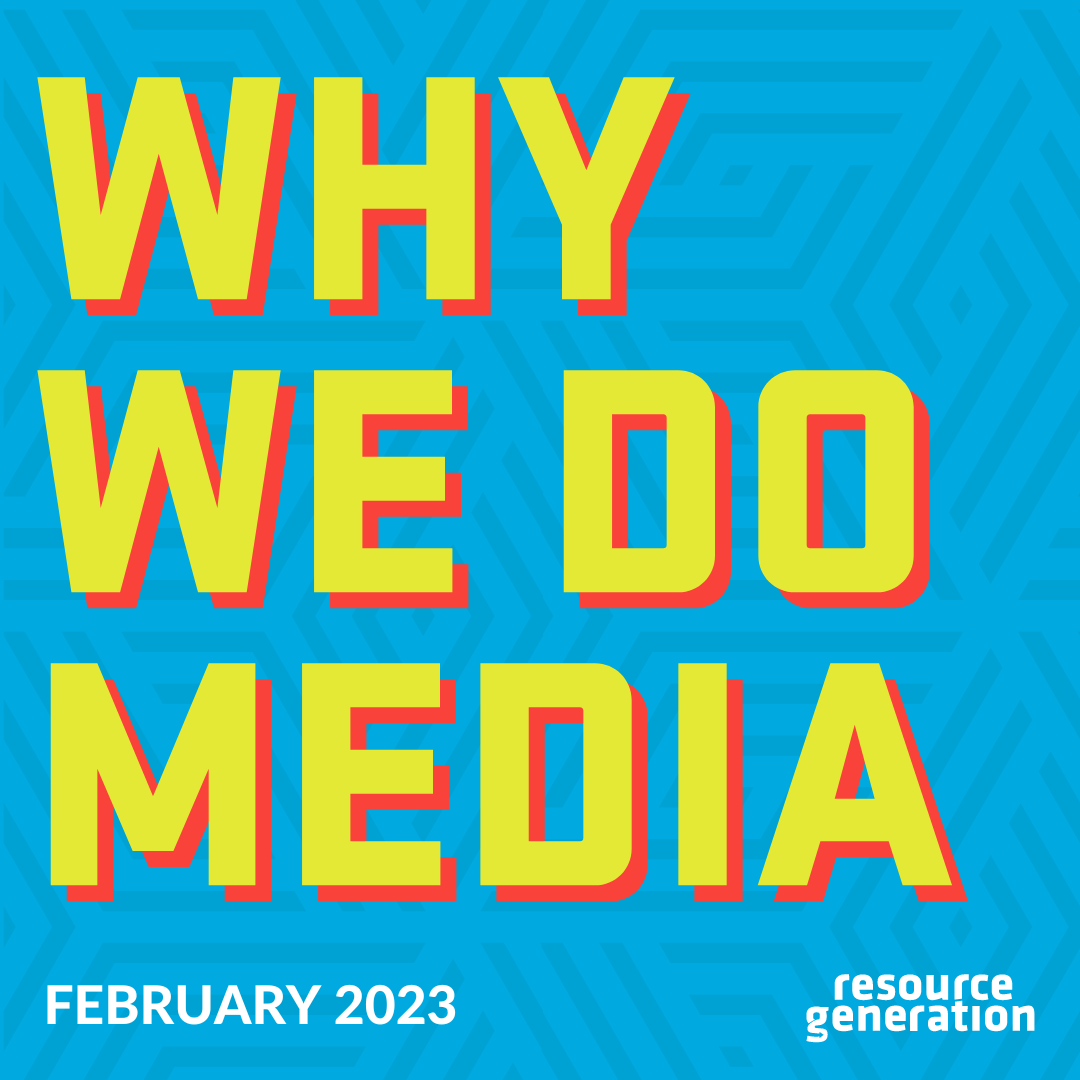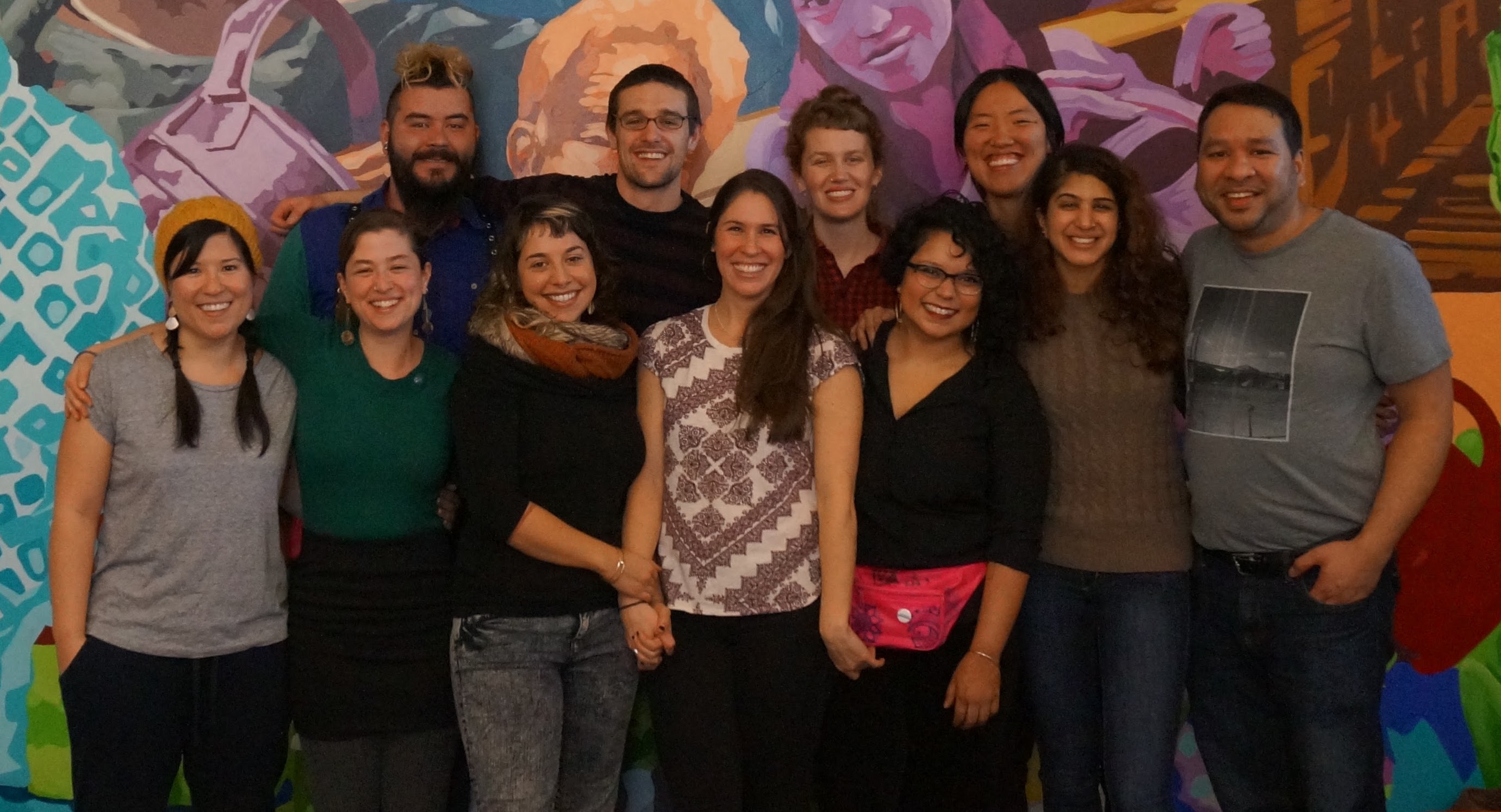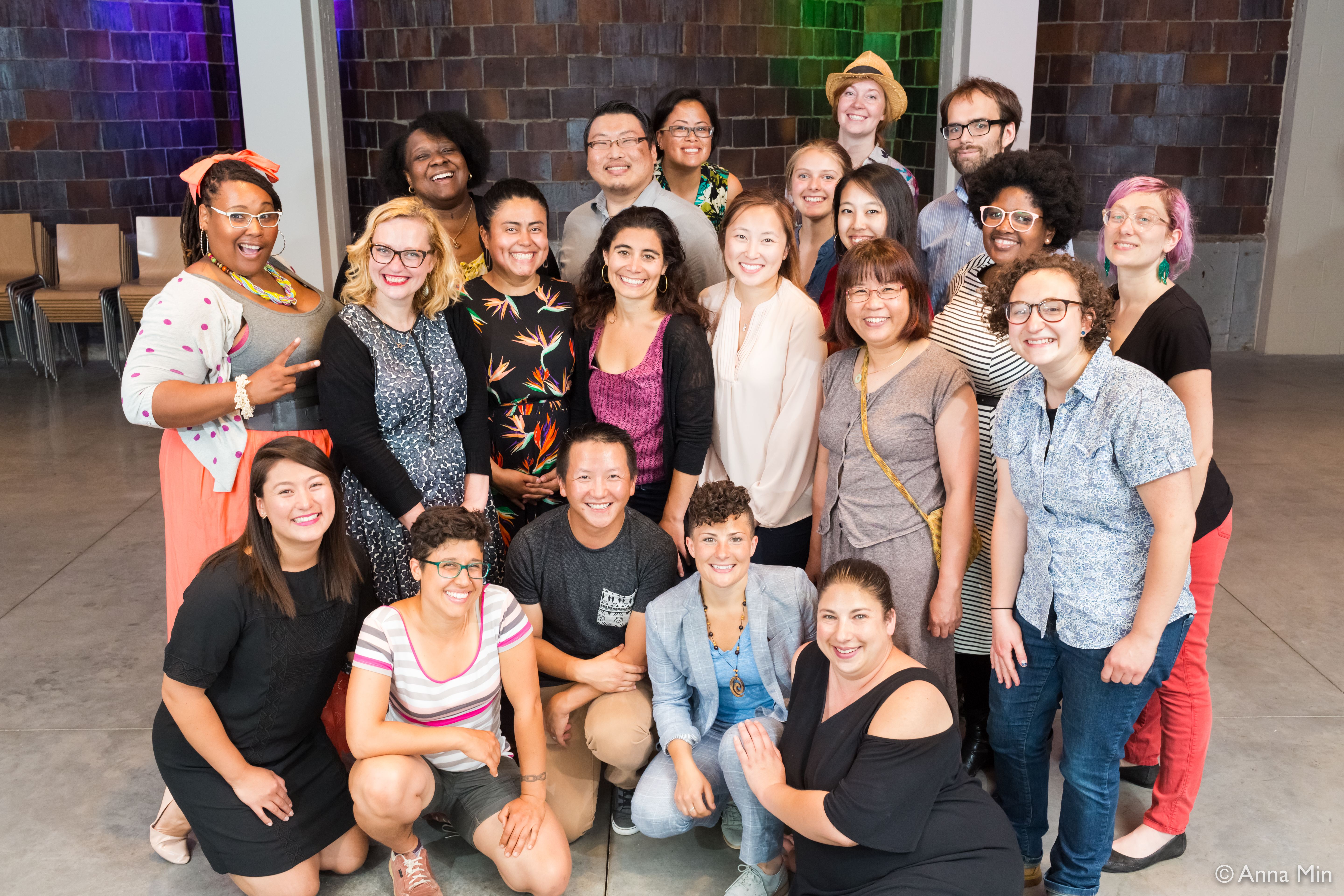
Our giving project cohort. I’m second from the left in the front row of the pic with the pillars in the background.
I got involved with Resource Generation about four years ago when my roommate invited me to an RG open house. The generational wealth in my family comes mostly from family businesses, including real estate and manufacturing boots for U.S. soldiers in the Panama Canal Zone (both of which are directly connected to colonization). Raised in an upper-middle-class neighborhood with semi-secret trust funds totaling $210,000 (today that number is about $135,000, with the difference mostly given back to the communities from which it originally came), I dropped out of undergrad after my first year and was working as a carpenter’s apprentice when I went to my first RG event. Although I genuinely love trade work, I also knew that I couldn’t resolve my feelings about class and wealth by simply running away and shunning the wealthy community and identity I grew up in. I appreciate the opportunity RG gives me to embrace my wealthiness and work with my people to change the role we to play in the oppressive class system (and dismantling it).
This past winter and spring I participated in the third cohort of The Giving Project through Headwaters Foundation for Justice, along with two other Twin Cities RG members. Headwaters is a social justice foundation granting locally in Minnesota, and RG has had a relationship with the foundation for the last several years. A couple of our members were even on the steering committee that helped launch the Giving Project at Headwaters, modeled after a similar project in other cities, such as Seattle. The Giving Project is a community-led grantmaking model for building power through community, leadership development, and funding social change.
This model is important because it puts the decision-making power of where funding is allocated into the hands of the community, and grounds both the fundraising and grantmaking process firmly in relationships. Each year Headwaters recruits a multi-racial, cross-class group of people who are passionate about funding social change and interested in building their skills in one-to-one fundraising, grantmaking, and community-building. Participants work together to raise and give out money to organizations that bring about significant, long-term solutions for justice and equity in Minnesota. Our cohort raised over $200,000 for nine local organizations. Based on our grant criteria, all nine organizations are led for and by People of Color and Indigenous communities, and use a community organizing model to work for systemic change around the issues that directly affect them. Our grantees do low-wage worker organizing, renter justice, Indigenous land recovery, Asian-American civic engagement, among other important work.
I want to share a couple highlights from my participation in the project:
During one of our meetings we did an activity called “Cross-class Q and A”; as smaller class-defined groups we presented information to the large group about what we had been taught growing up about money and giving. This included narratives about not having enough (despite relative abundance), not talking about money, and giving money to charities out of a dull sense of obligation. It was an extremely insightful and vulnerable space. I had never had a chance to dialogue so explicitly about money and giving in a cross-class space — it was a huge gift.
During our fundraising process, I could tell that the experience I’ve had in RG talking explicitly about money and class came in handy. After my first few asks, I started sharing my personal contribution to the Giving Project with the people I fundraised. This was on advice from some other cohort members of different economic classes who told me, “you need to model vulnerability.” They explained that “If you’re going to ask people for a specific amount and bring them into a conversation where they are being vulnerable about their own class and money situation, you have to get vulnerable alongside them by sharing your own.” And here I had thought I was avoiding making people uncomfortable or embarrassed by avoiding sharing my own large numbers. The challenge was to share this without coming across as pretentious or manipulative, because $10,000 was significantly larger than what I was asking most people to donate. It was great practice in recruiting dollars from my affluent community of origin without it feeling extractive or transactional.
I knew going into The Giving Project that I am connected through my social networks to lots of wealth. Many of these connections are people a generation or two older than me; family friends I see at holiday gatherings, at synagogue. I was worried that I didn’t have enough depth of relationship with them to fundraise them without it feeling transactional, especially because part of our fundraising training was to ask each potential donor for a specific dollar amount. I worried that my friends and community members would think to themselves, “Maddy assumes that we’re wealthy because of how she perceives our lifestyle and community and that’s the only reason she’s asking for money.” There was a conversation or two where it seemed like people did feel that way, but I took those moments to listen to people about their feelings about class, money, and fundraising. And to be fair, I did make assumptions about the amount of wealth of the people I fundraised. This was messy, but in my opinion, if we want to start taking wealth redistribution seriously, talking to each other about wealth and putting our assumptions on the table is a necessary step. As my fundraising meetings progressed, I got more comfortable asking people for specific amounts of money by acknowledging that I actually had no idea what would be an appropriate amount for that person, but throwing out a number anyway. Thank you to my mentor Jo Lum for excellent coaching on that particular piece. Jo (who was in the Giving Project cohort before me) is a Twin Cities RG member who facilitates a monthly caucus space for processing feelings around class and wealth, and was one of the volunteer mentors to our Giving Project cohort.
I made sure to always put the relationship first, using my fundraising meetings as an opportunity to have deep conversations about class, race, social justice, and the current political climate with my family, friends, members of my synagogue, coworkers – conversations that I often don’t get to have without explicitly creating the space for it. One of the biggest gifts of the Giving Project were those opportunities to talk vulnerably and get closer with members of my community. I got to listen to my friends, family, and coworkers about what was important to them. This must have been unexpected because some people tried to skip over it and wanted me to “get on with my pitch already.” Sometimes it took effort, but I made sure that I got a chance to hear their stories before I launched into talking about the Giving Project and making my ask – not just because it had been recommended but because I actually wanted to. I found it was easy to be genuine about my own enthusiasm for the project without being pitchy or preachy.
Once I got over some of my initial fears I could feel the joy of inviting people into something positive, joyful, and fun (as opposed to an obligation or chore). I was also direct with them that as people with wealth one role we can play in the collective liberation struggle is to supply movements with cash. This did involve making some assumptions about people’s socio-economic class, and was at times pretty scary. I think that much of this is due to the upper-middle-class conditioning I grew up with: talking, asking, or making assumptions about how much money people have is seen as rude. Even though it was scary and at times led to some awkward moments, I’m glad I summoned the courage to do this. It feels like a small step, but it showed me how much fear is in the way of bringing topics of money and class to the light. If it took that much courage just to ask good friends some slightly bold questions about money, imagine the courage it will take to do this work on a larger scale.
My biggest stretch was fundraising my parents because I asked for more than any of us had ever given to a single project before. I knew they would say yes to giving, but to my surprise, they said yes to the amount I asked for. They shared with me that seeing what I do in the world and the ways I push them around privilege and class forces them to see the world as a dynamic moving picture, rather than a still frame (in which they have accepted the lifestyle and place in society where they’ve spent the last couple decades). A couple months after the Giving Project was over, we ended up having a conversation with our whole family about how much money my parents have. I agreed not to share the exact number outside that conversation, but their net worth places them in the top 5% based on 2016 data (Survey of Consumer Finances). This money represents a combination of wages that earned money in the stock market, 401Ks with matching benefits, increasing home value, and gifts and inheritance from older wealthy family members. Both of these conversations created more openness and relaxedness around money in our family, which feels like an important victory against classism.
In the Giving Project I saw the success of bringing people close in a positive way, as opposed to using guilt or negative energy to motivate them. I shared my own passion and action about wealth redistribution, and invited my community to join me, rather than guilt-tripping or manipulating them.
I’m proud of how I pulled my weight in our Giving Project cohort. During our six-month cohort I did a total of 26 one-to-one fundraising asks and received a total of 23 donations, raising $17,420 in addition to my own $10,000 gift.
I think it is important for wealthy people to make personal, real relationships across different classes right now and try to push past the transactional nature of donations and philanthropy. I think it is also important to lovingly support each other in redistributing our wealth. Doing the Giving Project with Headwaters was a great fusion of the two and I’m grateful for the experience.
—
By Madeline Shaw, Resource Generation member based in Minnesota
—
Resource Generation is a national, multiracial membership-based organization in the U.S. of young people (18-35) committed to the equitable distribution of wealth, land, and power. Learn more here.
